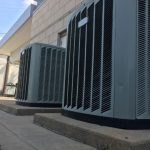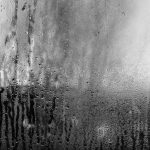
Trade High Utility Bills for Something More Fun
If your heat pump or air conditioner is more than a decade old, replacing it with a new, energy-efficient system can help you save money on your monthly utility bill and even improve your quality of life, as you’ll have more money to spend on the things you want.
According to the U.S. Department of Energy, switching to an energy-efficient heating and air system can save residents up to 20 percent on heating and cooling costs throughout the year. The typical American family spends around $2,200 annually on their energy bill, so this could easily equate to hundreds of dollars per year. The savings you receive from an energy-efficient system could even offset the building or operating costs of a major home improvement.
For example, if you have ever considered installing an in-ground swimming pool but thought it might be too expensive to operate, upgrading to an energy-efficient heating and air system can offset the monthly cost to operate the pool pump. You can get two major upgrades to your home, without changing your energy bill.
To save enough on your new system to help with other home-related expenses, you should know what to look for. When considering an energy-efficient system, you’ll want to keep an eye out for the following:
ENERGY STAR Certification
ENERGY STAR is a government-backed certification program for rating energy-efficient appliances. The program helps consumers (and businesses) make smart and environmentally sound decisions when purchasing appliances. According to ENERGY STAR, it has helped American families and businesses save more than $450 billion and over 3.5 trillion kilowatt hours of electricity since 1992.
When you see the ENERGY STAR symbol on a product, it means that product is at least 15 percent more energy efficient than a product built to the standard code. Not only do you save money by using an energy-efficient product, but ENERGY STAR has partnered with utility companies and local governments across the country to offer rebates and other incentives for upgrading to ENERGY STAR-rated appliances.
SEER Rating
SEER stands for Seasonal Energy Efficiency Ratio and measures the energy performance of heat pumps and air conditioning units. SEER rating is cooling output divided by total energy consumption over a period of time. The higher a unit’s SEER rating, the more energy efficient it is.
Residential heating and air systems built after 2005 are required to have a SEER rating of 13. Today, it’s common to see a system with a SEER rating into the 30s. And, while the price tag does go up for efficiency, the savings are returned in the long term.
Proper Installation and Maintenance Plans
Proper installation of your heating and air system and fully sealed ducts ensure your system is maintaining efficiency and saving you money. You should always have a licensed heating and air professional install your system. When searching for a heating and air specialist to work with, don’t be afraid to ask them about their license and certifications, as well as their past experience.
You should also schedule annual maintenance for your system and ensure that you’re doing what you can to keep it running as efficiently as possible. This includes regularly changing your air filters, cleaning your vents, clearing your drain line and adjusting your thermostat when you’re not home. Having a properly installed and well-maintained system ensures maximum efficiency and savings.
If you’re considering an energy-efficient upgrade, Barineau Heating and Air is ready to help. Our home comfort specialists will help you find the perfect heating and air system for your home and lifestyle, and our Total Comfort Service Program will ensure that your system stays in tip-top shape.




